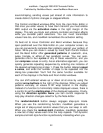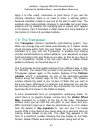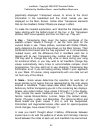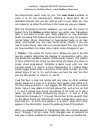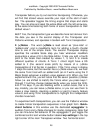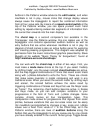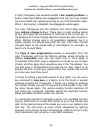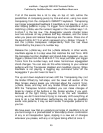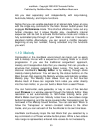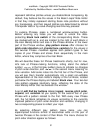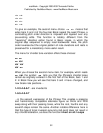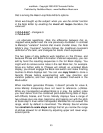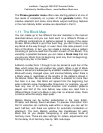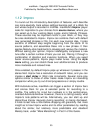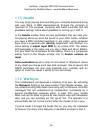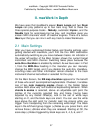maxWerk - Copyright 2000-2007 Amanda Pehlke
Published by RedMoon Music - www.RedMoon-Music.com
30
lets you deal
separately
and
independently
with
loop-making,
Automute,
Melody, and
Improv
functions.
Notice that you can
enable
playback of all
stored
data types at once
with the single key
command
or the Main Screen
button-press
that
engages
Performance
mode.
This
shortcut
effectively locks out any
further
changes,
but it allows Noodle play.
maxWerk's
internal
sequencer
can be told to activate
Performance
mode
and initiate a
fully
automated
play-through
of your Werk in
order
as it
records
a
standard
midifile. Alternatively, you can
record
a midifile manually
beginning
at any bar
number,
having
activated
only the functions
you want.
1.10 Melody
Composition
in the maxWerk
environment
can begin just as easily
with a melody line as with a
sequence
of looping notes or a chord
progression.
If you use the
traditional
songwriters'
appro
ach,
melody and
transposition
data that you
develop
first can
provide
a
structure
that inspires
supporting
Basic
Loops.
The best way to
discover
maxWerk's
Melody
Editor is by walking
through
some
melody-making
behavior.
You will see by the status
buttons
on the
Main Screen that
opening
the Melody window
automatically
enables
Melody play. The Melody track draws
from
up to five
four-bar
Blocks. Each of these can
originate
from
notes you
enter
directly
into the main Editor, or you can build a Block
from
a seed Phrase.
You can
hand-enter,
auto-generate,
or key in one of five
two-bar
seed Phrases in a window
opened
through
the Melody Editor. Step
resolution
is set
automatically
to
16th-notes
totaling twice your
Werk's
Meter
count per bar. Melody notes have a two
-octave
range
before
transposing,
and the
range
covered
after
transposing
can be
narrowed
in the Melody Sound window. You can ask each Block to
follow the
Transposer
or
remain
constant
relative to the
other
tracks, and you can set each of the five Blocks to its own time base.
maxWerk
continuously
loops the last Block that you selected by a
key
command
or a Phrase window
button-press.
While a
two-octave
note
range
is
represented,
entered
note values do not necessarily



